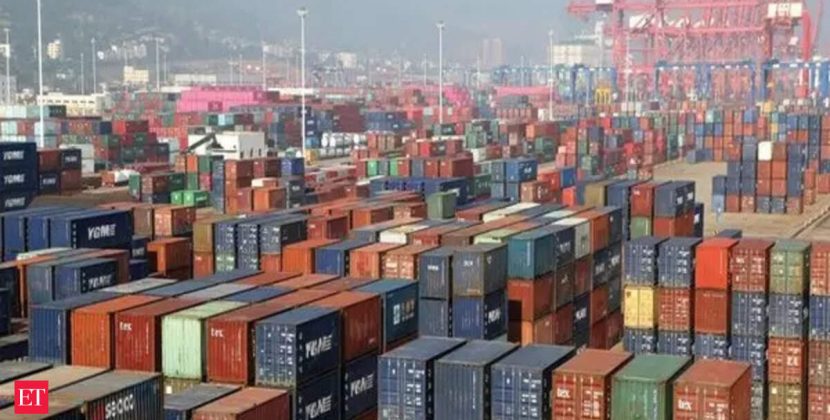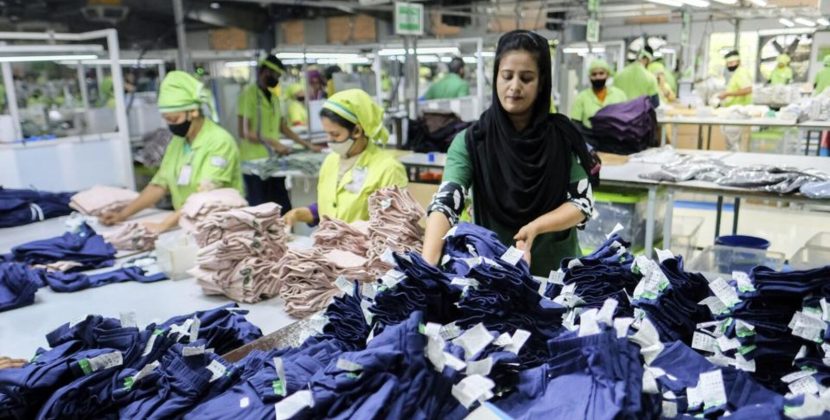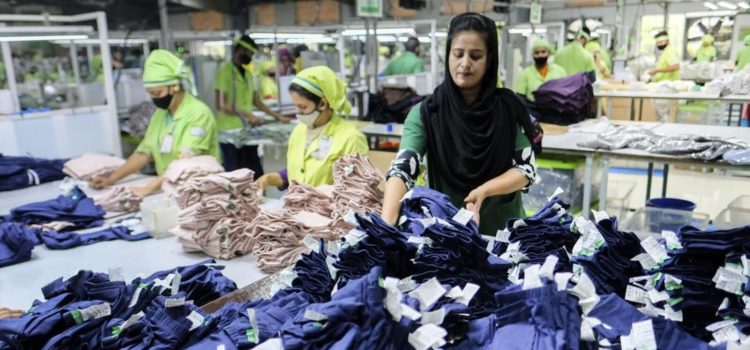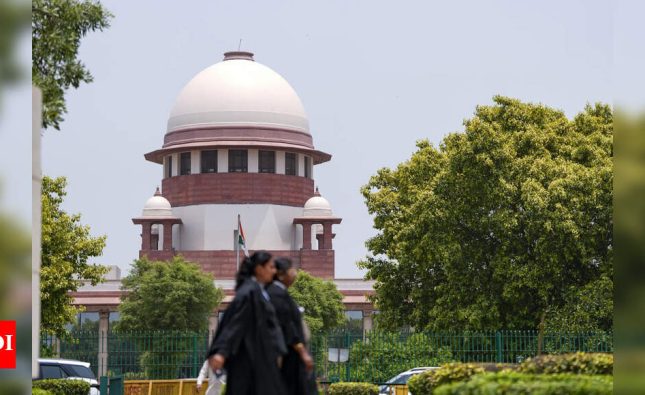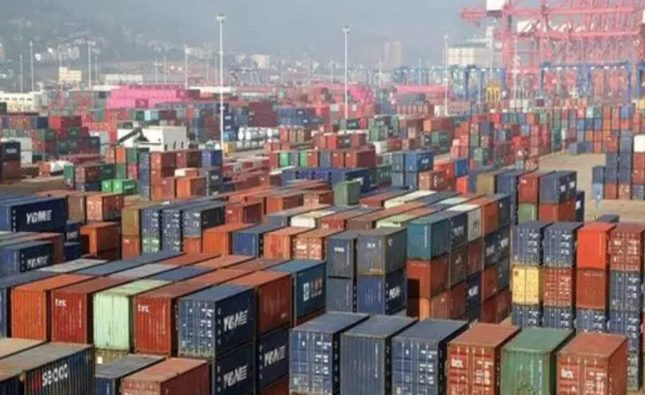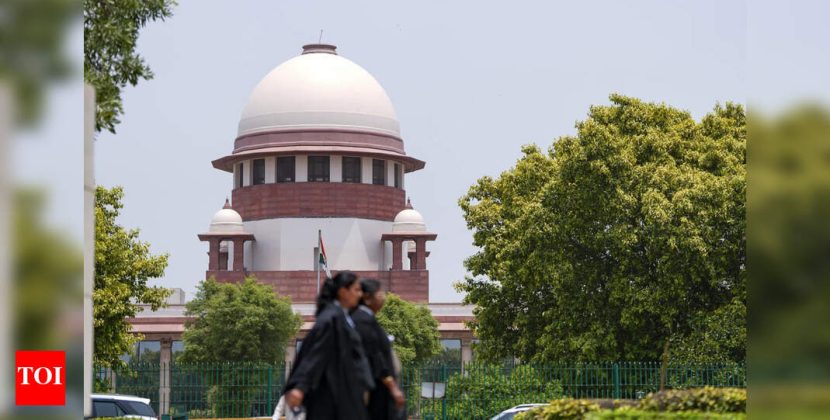
NEW DELHI: India on Saturday restricted imports of ready-made garments from Bangladesh only to Kolkata and Nhava Sheva ports and barred imports of a range of consumer goods through 11 land border posts in the northeast in response to restrictions adopted by the neighbouring country, people familiar with the matter said.
The Indian side’s move comes a little more than a month after New Delhi ended a nearly five-year-old arrangement for trans-shipment of Bangladeshi export cargo to third countries via Indian airports and ports against the backdrop of strained relations between the two sides.
Under the restrictions announced through a formal notification issued by the Directorate General of Foreign Trade, Bangladeshi exports of ready-made garments (RMG) will be allowed only through Kolkata and Nhava Sheva seaports. This step is expected to have a significant impact as Bangladesh’s annual RMG exports to India are worth about $700 million and 93% of these goods are exported through land ports.
The restrictions announced on Saturday will not apply to Bangladeshi goods transiting through India to Bhutan and Nepal.
Bangladeshi exports of a range of consumer items and other goods, including RMG, plastics and PVC finished goods, wooden furniture, fruit-flavoured and carbonated drinks, processed food items such as bakery and confectionery goods, cotton and cotton yarn waste, will not be allowed through 11 land customs stations and check posts in Meghalaya, Assam, Tripura and Mizoram, and Phulbari and Changrabandha posts in West Bengal, the people said.
India so far allowed Bangladesh to export goods through all land customs stations (LCSs), integrated check posts (ICPs) and seaports without undue restrictions. The people, however, said Bangladesh has imposed port restrictions on Indian exports, particularly at LCSs and ICPs bordering the seven northeastern states despite this matter being raised in meetings for a long time.
Besides, Bangladesh stopped yarn exports from India through land ports from April 13, 2025, and Indian exports are subjected to rigorous inspection, thereby causing substantial delays, the people said. Indian rice exports too were barred through Hili and Benapole ICPs from April 15, 2025).
“Locally manufactured goods from the northeastern states don’t have access to Bangladeshi markets because of land port restrictions imposed by Bangladesh,” one of the people said. “On the other hand, Bangladesh has free access to the entire market in the northeastern states, creating an unhealthy dependency and stymieing the growth of manufacturing in the region.”
The people pointed out that Bangladesh has imposed an unreasonably high and economically unviable transit charge of 1.8 taka per tonne per kilometre for Indian goods, hampering the trans-shipment of goods from the northeastern states to the Indian hinterland via Bangladeshi territory.
“All the decisions made by the Indian side are on the basis of equality and fairness. India offered more than what would be expected under the principle of reciprocity, and this has not been reciprocated by Bangladesh,” a second person said.
“The Bangladeshi side can’t take market access for granted, and they can’t cherry pick items that they will allow through land ports,” he said. “They have not been allowing value-added items from the northeastern states, while they were exporting such items to the northeast.”
The people explained that the restrictions will also apply to the Changrabanda and Fulbari LCSs in West Bengal to prevent the re-routing of Bangladesh exports to the Northeast via the Siliguri corridor. The measures are also meant to support local manufacturing in the northeastern states, and the targeted list of items will be reviewed to ensure fair and equitable growth in the northeastern states in line with Central government schemes, they said.
The restrictions announced on Saturday will not apply to Bangladeshi goods transiting through India to Bhutan and Nepal.
Two-way trade was worth $12.90 billion in FY24 and Bangladesh was India’s biggest trading partner in the subcontinent. India was the second largest export partner of Bangladesh, accounting for 12% of total exports. India’s exports to Bangladesh were worth $11.06 billion in FY24, and imports from Bangladesh stood at $1.8 billion during the same period.
The friction in trade ties between India and Bangladesh comes against the backdrop of strains in the overall relationship. Bilateral relations have been in freefall since former premier Sheikh Hasina was ousted following weeks of student-led protests last August and the interim government headed by Muhammad Yunus assumed office.
India has repeatedly urged Bangladesh to prevent the repression of minorities, including Hindus, and expressed concern at an increase in radicalisation.
Yunus’s remarks that appeared to leverage the geographical isolation of India’s northeastern states while seeking Chinese investments also did not go down well in New Delhi. Addressing a business meeting during a visit to China, Yunus said India’s landlocked northeast, which shares a nearly 1,600-km border with Bangladesh, has no way to reach the ocean except through his country.
“This opens up a huge possibility, this could be an extension of the Chinese economy,” Yunus said.
In a riposte to Yunus, Prime Minister Narendra Modi subsequently said that India’s northeastern region, with its geographical location, “lies at the heart of Bimstec”.
External affairs minister S Jaishankar also told a meeting of Bimstec foreign ministers that India’s northeast can become a regional connectivity hub with the completion of a highway that will link the region to Myanmar and Thailand.

